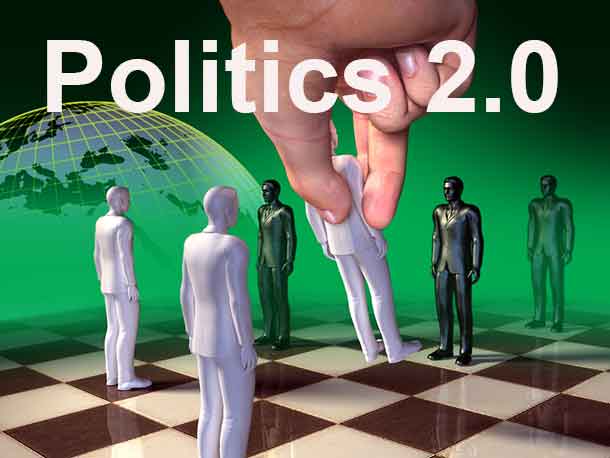 OTTAWA – GUEST EDITORIAL – The climate debate is one of the most important discussions in the world today. At stake are billions of dollars, millions of jobs, and, if people like David Suzuki are right, the fate of the global environment. Consequently, we urgently need all parties in the discussion to behave responsibly.
OTTAWA – GUEST EDITORIAL – The climate debate is one of the most important discussions in the world today. At stake are billions of dollars, millions of jobs, and, if people like David Suzuki are right, the fate of the global environment. Consequently, we urgently need all parties in the discussion to behave responsibly.
This month is especially critical. On September 23, United Nations Secretary General Ban Ki-moon is hosting Climate Summit 2014 in New York City. The event’s main purpose is “to mobilize political will for a meaningful universal agreement at the climate negotiations in Paris in 2015.”
In advance of the Summit, activists are working hard to bring climate change to the top of the political agenda:
- The UN’s World Meteorological Organization (WMO) is releasing fourteen “weather reports from the future.” Each depicts what the WMO claims are realistic weather scenarios for the year 2050;
- Al Gore’s fourth annual 24 Hours of Reality, “dedicated to sparking action on climate change”, will be broadcast across the world on September 16 and 17;
- The People’s Climate March, a massive rally to be held in New York on September 21, will involve 950 organizations with 63 other events in North America, six in South America, 54 in Europe, 10 in South Asia, and 32 in Australia;
- The last three of Leonardo DiCaprio’s four-film series, Green World Rising, are being released just before the UN Summit.
So, like it or not, we are going to be inundated with climate issues in the weeks ahead. Wouldn’t it be a pleasant change if this discussion was conducted in a mature fashion, instead of the aggressive finger-pointing that has poisoned the debate to this point?
In his August 6 article about the Heartland Institute’s recent International Climate Change Conference (ICCC) in Las Vegas, Suzuki condemned the personal attacks he says are coming from those who disagree with his point of view on climate. To some extent he is right. Some of his opponents do behave badly at times.
But Suzuki’s behavior often provokes aggressive counter-attacks since he regularly commits the same sort of abuses he criticizes other for. To help campaigners on both sides of the controversy recognize the sort of behavior we must avoid, let’s examine the problems with Suzuki’s recent article. One would hope that Suzuki would display exemplary behaviour when he criticizes others for bad manners.
In his first sentence Suzuki refers to his intellectual opponents as “climate change deniers”. Such name-calling is often carried out by climate activists apparently to encourage readers to equate climate skeptics with Holocaust deniers and so discount what they are saying. This is a fundamental error in reasoning, a logical fallacy called ‘ad hominem’, or against the man. Attacking the ideas of others when you think they are mistaken is acceptable, and indeed, critical to scientific advancement. But attacking the integrity or intelligence of people who present these ideas is intolerable in civilized discourse.
Regardless, making an analogy, even indirectly, between denial of the Holocaust and questioning the causes of climate change is irrational. The former was a horrific event that is part of established history while the latter concerns arguably the most complex science ever tackled.
Of course, no one in the scientific community denies climate change. The only constant about climate is change. It is the causes of those changes that are being questioned, a very sensible enquiry considering what is at stake.
Suzuki next refers to those of us who take part in ICCC events as “a who’s who of fossil fuel industry supporters and anti-science shills.” He says that we lie and “sow doubt and confusion, either out of ignorance or misanthropic greed.”
Suzuki has no way of knowing what we think or what motivates us. His accusations are merely ‘motive intent’ logical fallacies, the mistaken idea that a person’s statements should be discounted because they appear to have a motivation to express a particular point of view.
But all participants in the climate debate are motivated by one objective or another: environmental protection, health, energy security, a robust economy, etc. No one is without motivation. So all that matters is whether what is being said is correct or not. That is why we at the International Climate Science Coalition (ICSC) disagree with Suzuki when he makes science mistakes but never criticize the David Suzuki Foundation for having accepted donations from oil and gas companies.
The ‘motive intent’ fallacy often occurs because climate campaigners feel obligated to counter their opponents even though most do not have the background to properly assess the relevant science. Rather than take the time to learn the science, activists often try to distract the public by accusing skeptics of having a motivation to lie.
Not only is this a basic error in reasoning, but it is usually groundless as well. The majority of participants in ICCC conferences have no financial relationship with the hydrocarbon fuel industry, aside from being customers for their products. And Heartland clearly states that funding for the conferences mainly comes from private family foundations.
For skeptics who do have connections with energy companies, Suzuki needs to demonstrate that they changed sides in the debate in order to receive corporate funding, if he wants his charges of bias to be taken seriously. That some climate experts may eventually receive industry support decades after their skeptical positions have already been established is not surprising. These companies will always seek independent third-party experts to help them respond to criticism from environmental campaigners.
Finally, Suzuki’s charge that skeptics “disavow science” and have “no rational challenge to overwhelming scientific evidence that the world is warming and that humans are largely responsible” is both a ‘red herring’ logical fallacy and wrong besides.
It is a red herring because there is no known consensus in the scientific community about the causes of the past century’s modest warming, and even less agreement about the future. Consensus claims have been repeatedly debunked as simply weapons to frighten skeptics into silence.
Groups like Heartland and ICSC embrace science, welcoming skepticism of politically correct ideas that do not match observational evidence. As shown by the Nongovernmental International Panel on Climate Change reports, practically every one of the climate science points Suzuki brings up are seriously contested by leading experts in the field.
The results of the mistaken belief that we can control global climate is tragic. Of the approximately $1 billion US dollars that are spent globally every day on climate finance, only 6% goes to helping people adapt to climate change today. The rest goes to trying to stop what might happen decades from now. This is giving more value to people yet to be born than those suffering today. This is the real immorality Suzuki should be concerned about.
Suzuki is right to worry about the tenor of the climate debate. It is riddled with censorship, logical fallacies, belligerence, retribution, and even defamation and death threats. No wonder many of the world’s leading climate experts will no longer comment in public. If today’s discourse on global warming is an indication of where we’re headed on science-based policymaking, then we are in big trouble indeed.
It’s well past time for Canada’s leaders, David Suzuki in particular, to invite well-informed scientific skepticism. Considering what’s at stake, we can’t afford anything less.
Tom Harris, B. Eng., M. Eng. (Mech.)
Executive Director,
International Climate Science Coalition (ICSC)
Ottawa, Ontario, Canada
www.climatescienceinternational.org
613-728-9200Note: The ICSC relies on donations from the public across the world to cover its operating expenses,











